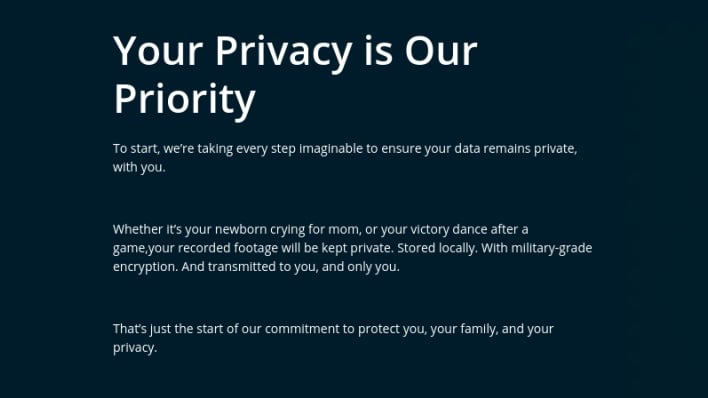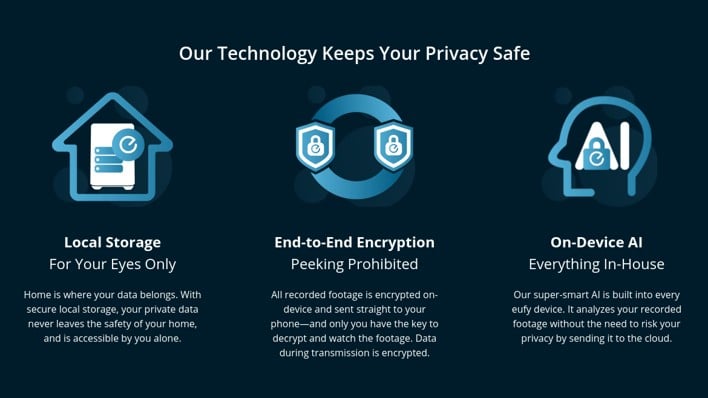Anker Apologizes For Eufy Cameras Uploading Unencrypted Content Without User Consent
Eufy video devices make good on the company’s local storage claim by transmitting footage to a “HomeBase,” which resides within the user’s home. The HomeBase contains a hard drive where all this footage is stored locally. Users can then access this footage in the Eufy app or web portal, which connects directly to each user’s HomeBase. According to the company, this recorded footage is end-to-end encrypted (E2EE), meaning the data is encrypted not only during transit, but also at rest, and must be decrypted with a private key restricted to each user’s account.
Recently, after purchasing a Eufy video doorbell, security consultant Paul Moore found that, when logged into the Eufy web portal, the site’s source code contains plaintext URLs that specify the location of unencrypted images stored on a Eufy cloud storage server. These images are drawn from footage captured by Eufy video devices, then stored on the cloud for at least twenty-four hours. These images remain accessible at the URLs found in the web portal even after the user disconnects the HomeBase from the internet, deletes the original footage from local storage, or deletes the user account entirely.

Eufy has responded to these revelations by apologizing for a “lack of communication,” as “it was not made clear that choosing thumbnail-based notifications would require preview images to be briefly hosted in the cloud.” According to the company, these images are set to be automatically deleted after an unspecific amount of time, though Eufy stated that the plaintext URLs found in the web portal source code expire within twenty-four hours. Eufy also told Moore that it plans to encrypt the API that connects the web portal to Eufy’s cloud sever in order to avoid displaying plaintext URLs. The company has said that it will update the language in its marketing and push notification settings to make clear that thumbnail-based push notifications require that preview images be uploaded to the cloud.
Top image courtesy of Eufy


